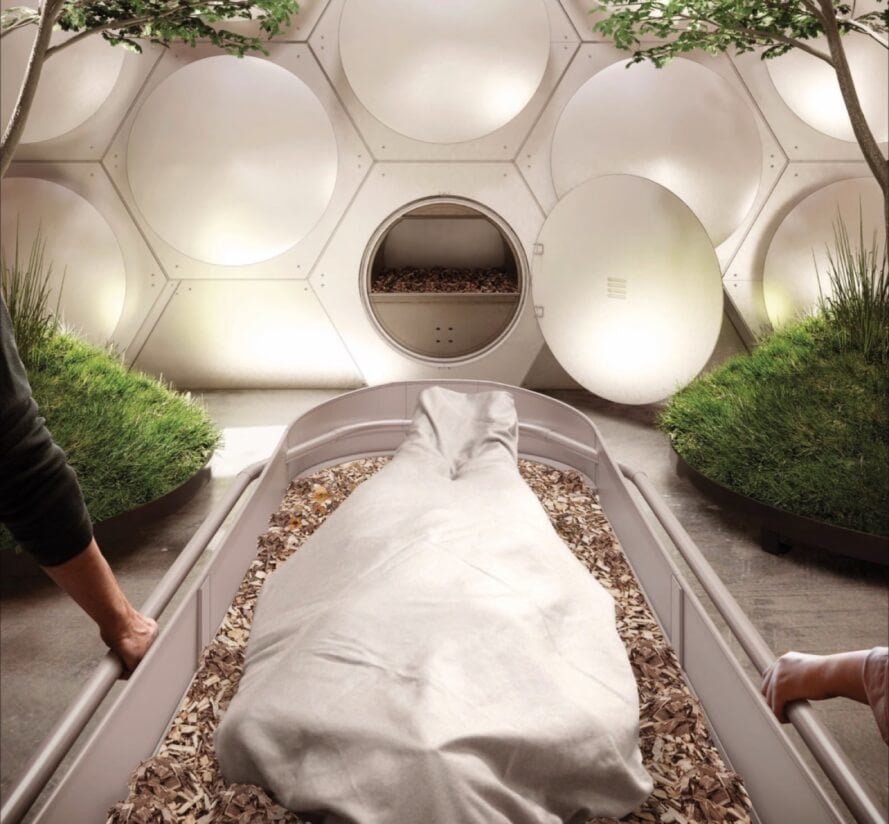We hope you are well. As we continue to explore sustainable and environmentally friendly alternatives, today we wanted to shed light on an emerging burial option gaining popularity – human composting. I know what feelings that brings up first, but stick with me. It is really a great alternative and has significant ecological benefits.
Traditional burial methods typically involve burial in cemeteries, embalming, and the use of non-biodegradable caskets. These practices place a significant burden on the environment. However, human composting offers an innovative, eco-friendly, and meaningful alternative.
Human composting, also known as “natural organic reduction,” is the process of turning human remains into nutrient-rich soil using natural decomposition. The process involves placing the body in a specially designed vessel, which houses the body as it transforms through microbial activity, heat, and the breakdown of organic material. Over time, the body’s natural elements become compost, which can then be used to nourish the earth.
One of the key advantages of human composting is its positive impact on the environment. By choosing this burial option, individuals can significantly reduce their carbon footprint. Traditional coffins, burial vaults, and embalming fluids contribute to deforestation and the release of harmful chemicals into the soil. Human composting, on the other hand, presents a more sustainable approach that accelerates the natural decomposition process, bypassing the need for these harmful practices.
Beyond its environmental benefits, human composting can offer a deeply personal and spiritual connection to the cycle of life. Families who decide to choose composting as a burial option often find solace in knowing their loved one’s remains will nourish the Earth, allowing them to contribute to the growth of new life. It provides a tangible, organic connection between death and the continuation of life, fostering a sense of peace and harmony with nature.
It’s important to note that human composting is a regulated practice that follows strict guidelines and procedures to ensure safety and ethical considerations. Numerous jurisdictions are embracing this approach, having passed legislation to legalize and regulate the process. This broad acceptance of natural organic reduction signifies its growing recognition as a viable choice for environmentally conscious individuals and families.
While human composting is gaining traction and becoming more widely available, it is essential to research and understand the options and regulations in your specific area. Funeral homes, green burial sites, and local legislative bodies can provide valuable information regarding this emerging burial alternative.
As we collectively work towards a sustainable and environmentally friendly future, exploring eco-conscious options like human composting can play a crucial role. By choosing this method, we not only make a positive impact on the environment but also cultivate a deeper connection with the natural world, ensuring that our legacy lives on through the nourishment of the Earth.
In case you missed our previous articles on sustainable practices, we encourage you to revisit them on our website. Remember, every small step towards a greener future counts.
Thank you for being a part of our community and joining us on this journey.
If you are interested in learning more, reach out now!





